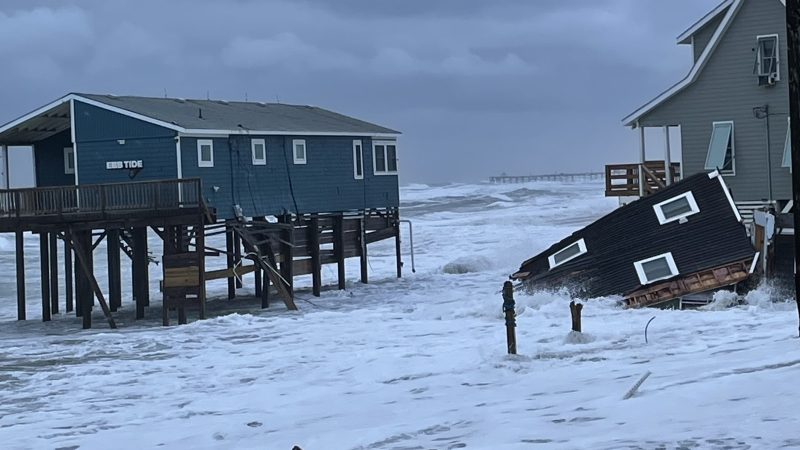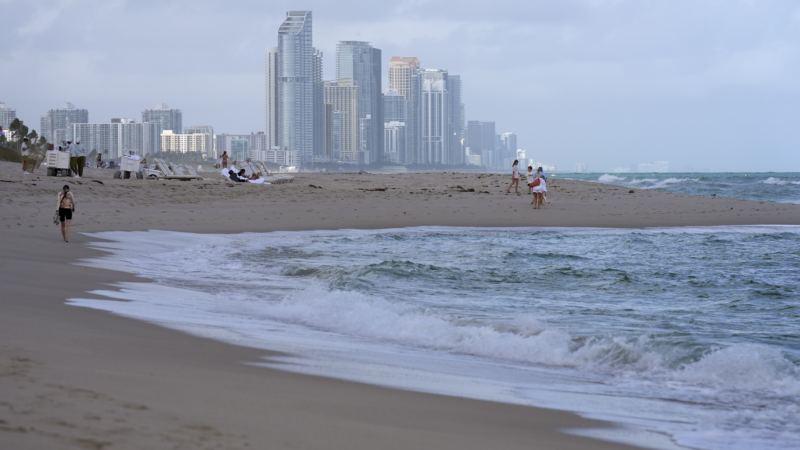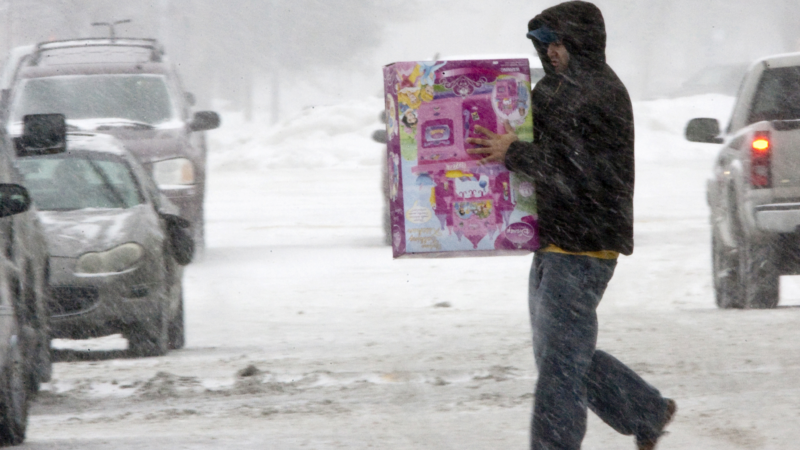Sixth beach house collapses in North Carolina’s Outer Banks in the past 6 months
From May to November, six beach houses have crumbled in North Carolina’s Outer Banks — a troubling sign of how erosion continues to put a toll on the state’s coastal villages.
The most recent collapse occurred in the overnight hours between Thursday and Friday after a storm triggered powerful waves along Rodanthe. The house was unoccupied and officials have been in contact with the property owner, according to the National Park Service’s Cape Hatteras National Seashore.
Localized ocean overwash is impacting parts of NC12 along the Outer Banks this morning. Make sure to send us any pictures or reports of coastal flooding or other impacts from this system. #ncwx pic.twitter.com/PTbnpMNt2u
— NWS Newport/Morehead (@NWSMoreheadCity) November 15, 2024
Less than a mile away, three other homes had collapsed in September. Since 2020, a total of 11 houses in the area have been swept away into the ocean.
Cape Hatteras National Seashore said the daily effects of strong winds, large waves, as well as rising sea levels — which are fueled by human-caused climate change — are causing beaches on the Outer Banks to wash away.
“Many private properties adjacent to the beach in Rodanthe, which previously contained backyard land, dunes, and dry sand, are either partially or fully covered with ocean water on a regular basis,” the Seashore said.
It’s an issue faced by coastal communities around the country, including in Cap Cod, Mass., Palm Beach, Fla., and Long Island, N.Y.
In North Carolina, more than 750 homes along the state’s beaches are considered at risk from erosion, according to an August report released by the state’s Department of Environmental Quality and Cape Hatteras National Seashore.
“So we’re looking at … several hundred structures that could be put at risk due to a major storm or a major erosion event that could happen pretty much any time,” said Tancred Miller, director of the state’s Division of Coastal Management, which helped with the report, told member station WUNC in October.

Erosion in these coastal villages impacts tourism, disrupts habitats for shorebirds and sea turtles, and when homes collapse — leaves miles of debris on beaches. The situation is expected to worsen as a result of rising sea levels and more coastal storms, the report warned.
Cape Hatteras National Seashore said local officials have alerted dozens of owners of at-risk properties, urging them to ensure the structural stability of their pilings and decks, or to relocate their beach houses if possible.
France’s highest court upholds corruption conviction of ex-President Nicolas Sarkozy
Sarkozy, 69, faces a year in prison, but is expected to ask to be detained at home with an electronic bracelet — as is the case for any sentence of two years or less.
About 3 dozen high-rise buildings in South Florida are sinking, a study finds
The 35 buildings surveyed along an almost 12-mile stretch from Miami Beach to Sunny Isles Beach have sunk or settled by 0.8 to 3.1 inches, scientists found.
Barely Legal: Some officials in Alabama want to outlaw delta-8. Others want to make it safer
Delta-8, which comes from hemp, is processed to create a concentrated form of THC. It’s legal for sale in Alabama … at least for now.
Dozens of prisoners allege a culture of violence by guards at federal facility in Virginia
At a federal prison in rural Virginia, more than 50 prisoners say they've been abused. But when they try to file a complaint — they're stopped, often by the same guards they say are abusing them.
Dreaming of a white Christmas? There’s hope, depending on where you live
A few parts of the country may get a white Christmas in 2024, but the majority will not. And in the future, shifts in weather patterns driven by global warming may make them even less likely.
The CDC has confirmed the first severe case of bird flu in a human in the U.S.
A person in Louisiana has been hospitalized after becoming infected with a case of bird flu that's been linked to wild birds and poultry.






